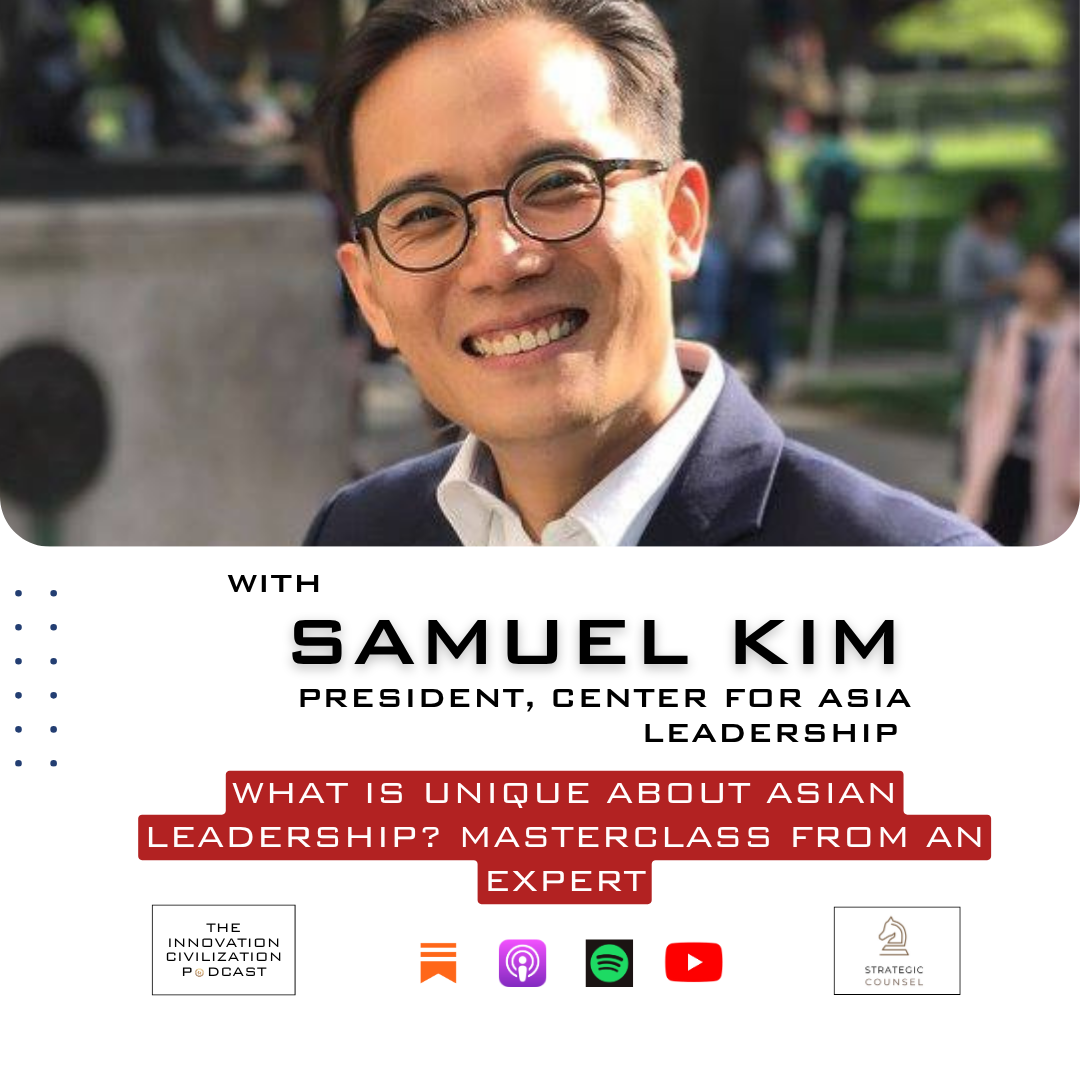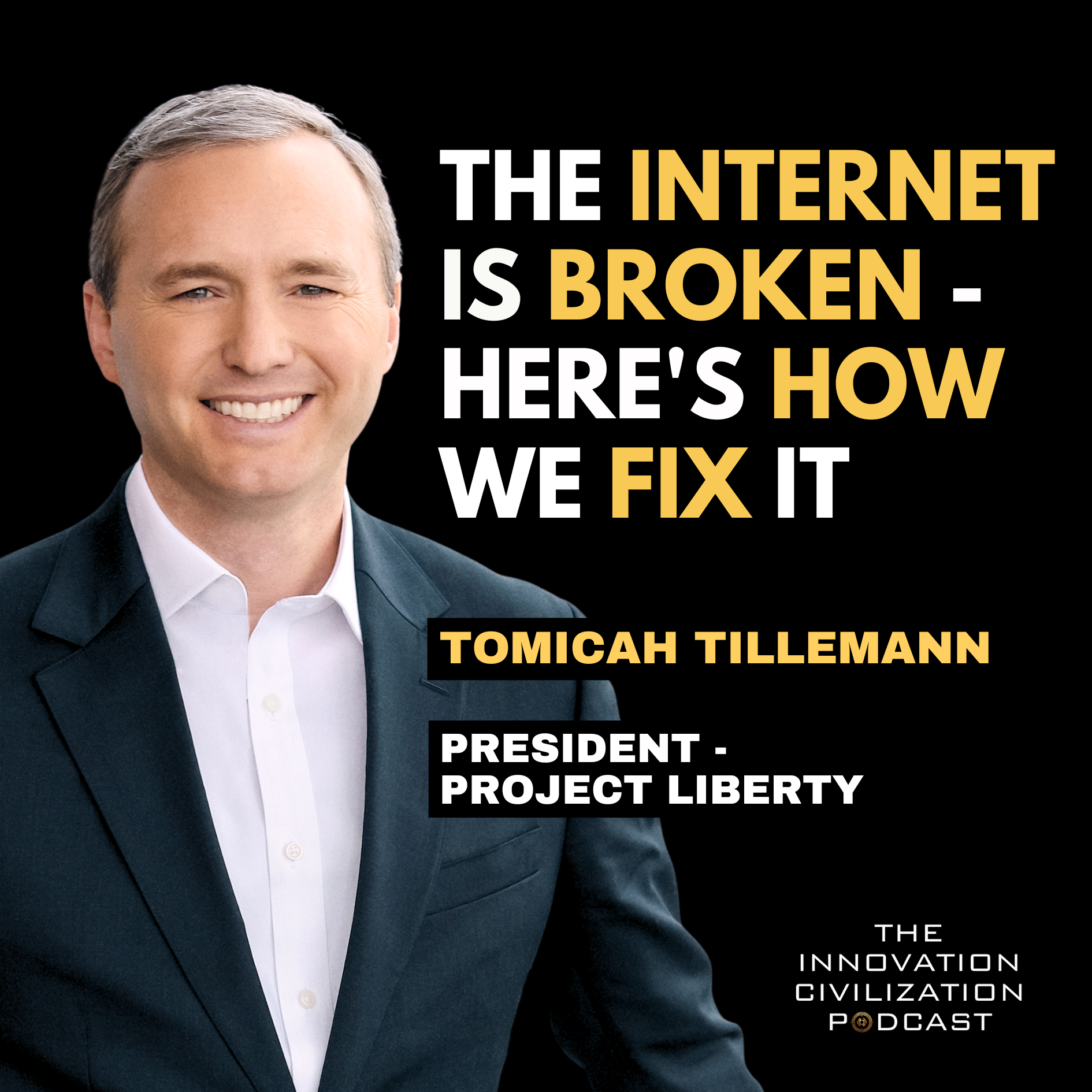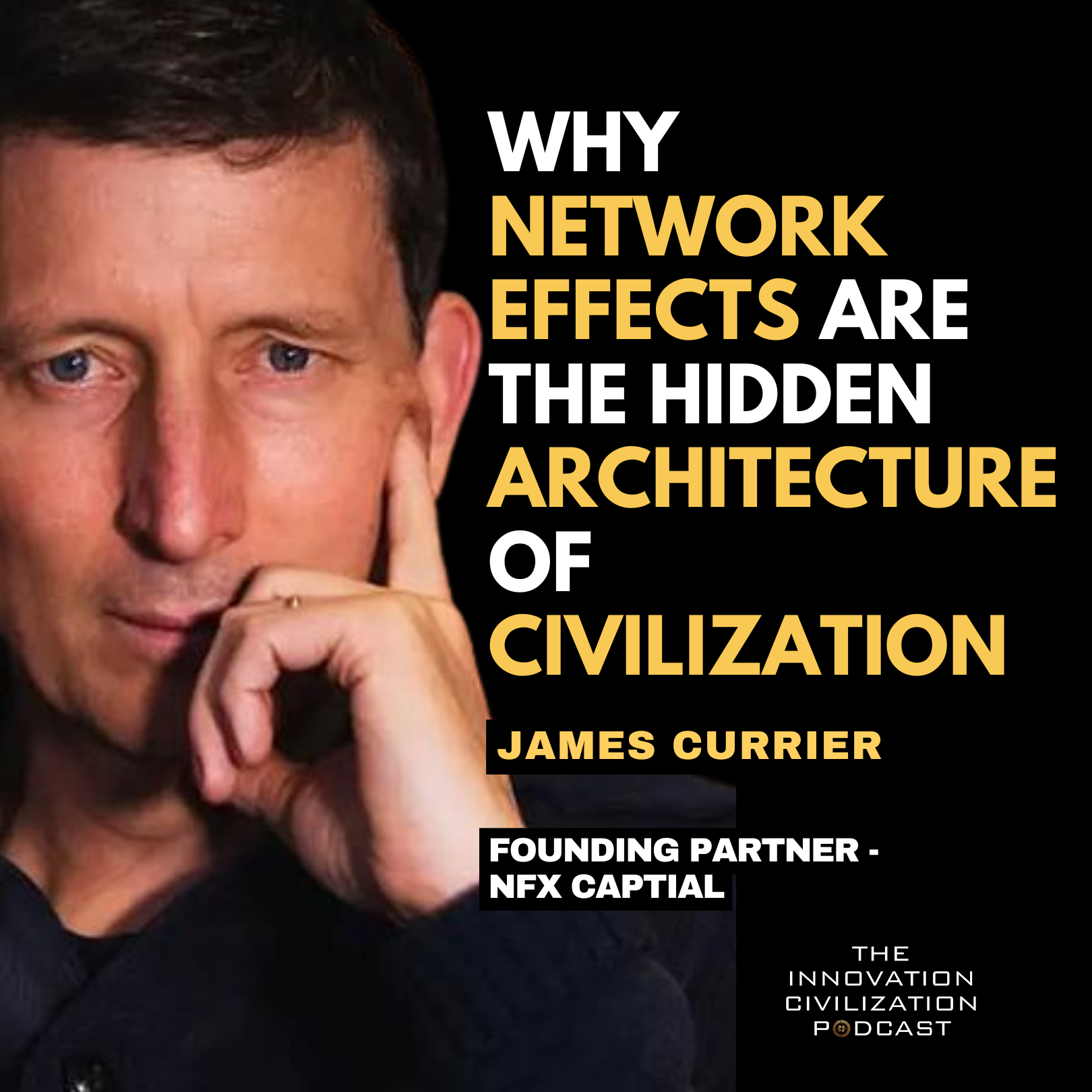Episode Description
We’re joined by Samuel Kim, the Founder and President of the Center for Asia Leadership, who shares with us the unique challenges and differences of teaching leadership in Asia.
Samuel has trained over 50,000 leaders across 90 countries, helping organizations, governments, and family-run businesses navigate complex leadership challenges. From his early career at the UN to military service, startups, and education reform across Asia, Samuel brings a rare cross-sector perspective on what it takes to lead well in moments of uncertainty, hierarchy, and rapid change.
We explore the systemic failures of leadership in Asian institutions, the cultural legacy of power distance, and how organizations—both public and private—fall into patterns of decay when truth is suppressed, feedback is feared, and hierarchy is mistaken for competence.
We also dive into the role of AI and the Fourth Industrial Revolution in reshaping leadership expectations, talent pipelines, and what future-ready organizations must do to retain their edge.
This episode is part of our Emerging Market Leadership Series, created in collaboration with Strategic Counsel.
We dive into:
-Why the Philippines used to be Korea’s role model—and what changed
-How bad leadership triggers institutional decay
-The four dangerous leadership responses to decline
-Power distance and hierarchy in Asia vs. the West
-How authoritarian cultures suppress truth and innovation
-Why great leaders must spotlight what’s falling apart
-The trap of inherited leadership in family businesses and politics
-Building microcultures of trust and feedback
-AI and leadership: why future-ready leaders need both heart and hard skills
-What Asia can teach the West about human-centered leadership
Key Takeaways from the Episode:
1. Leadership Is About Noticing Decay:
Samuel defines leadership as the ability to draw attention to what’s falling apart—even when everyone else is celebrating success.
2. The Four Dysfunctional Responses to Decline:
Leaders often ignore decay, delay action, blame others, or delegate responsibility away. These behaviors are the seeds of institutional collapse.
3. Power Distance Corrodes Truth:
In high power-distance cultures, subordinates fear speaking up, and leaders stop hearing uncomfortable truths. This dynamic has real consequences—from Mao’s famine to corporate collapse.
4. Leadership Isn’t a Title—It’s a Choice:
Whether in politics, corporations, or NGOs, real leadership means taking responsibility before you’re told to. Titles alone don’t make leaders.
5. The Case for Microcultures:
Even in rigid hierarchies, middle managers can build “microcultures” of open communication and feedback. Culture change doesn’t always start at the top.
6. The Parachute Problem:
When leaders are “parachuted” into top roles due to family connections or seniority, they often lack legitimacy. Samuel outlines how humility and listening can help rebuild trust.
7. Asia’s Advantage: Loyalty, Collectivism, and Human-Centric Leadership:
While the West emphasizes individualism, Samuel argues Asia’s collectivist mindset—when combined with feedback culture—can build more loyal, resilient teams.
8. Leadership in the Age of AI:
Modern leaders must integrate business acumen with AI fluency. Understanding how to ask better questions, leverage data, and think across disciplines is now essential.
9. The Role of Governments and Institutions:
Samuel highlights how some Asian governments are adapting by reforming education, labor laws, and national KPIs to stay relevant in the Fourth Industrial Revolution.
10. The Future Belongs to Distributed Leadership:
In complex, uncertain times, no single person has all the answers. Leaders must cultivate diverse allies, solicit uncomfortable perspectives, and share responsibility.
Timestamps:
(00:00) – Introduction to Samuel Kim and the crisis of leadership
(03:00) – Why nations rise and fall based on leadership quality
(06:40) – The four common leadership failures in times of decay
(12:10) – Formal vs. informal authority in Asian contexts
(16:00) – Power distance, speaking up, and the role of trust
(20:00) – When leaders inherit power but lack credibility
(26:00) – Systems vs. individuals: Why governance models matter
(31:00) – Parachute leaders: How to survive and gain legitimacy
(35:00) – Business acumen + people skills: What modern leaders need
(39:00) – What Asian leadership models can teach the West
(43:00) – Building loyalty through second chances
(44:30) – The role of AI in shaping the future of leadership
(48:00) – Final thoughts and how to attend Samuel’s next conference
Join us for a deeply personal and global conversation about power, truth, humility—and how Asia’s evolving leadership models may hold the key to navigating the future.
Follow our host (@iwaheedo) for more deep dives into leadership, progress, and innovation in emerging markets.








